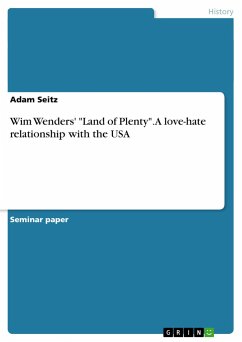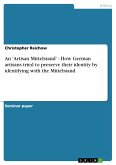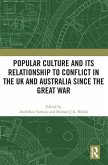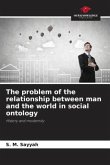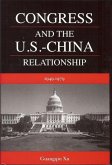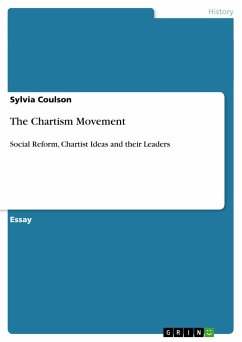Seminar paper from the year 2008 in the subject History Europe - Other Countries - Newer History, European Unification, grade: 2,0, University of California, Berkeley (Department of History), course: U.S. Cultural and Intellectual History: Global Contexts, language: English, abstract: Wim Wenders' ambiguity, the love-hate relationship with the United States was the main force behind the production of "Land of Plenty" (2004). It was shot within three weeks with a small digital amateur camera, and only because the production of his next film "Don't come knocking" (2005) got delayed. The entire production of the movie took not more than six weeks. Without a doubt, it is Wenders' most political film so far. As a Christian, one (or, as he stated once, even his initial) idea for the film was "to set a radically contrary idea of being Christian against the fundamentalist Christendom" of the Bush administration. His ambition was to "fight against the treason [on democracy and freedom and] on all what is left of my childhood myth." As stated in the press release for "Land of Plenty", it is a "film about the country he has been concerned with for many years and which he loves", a "very personal" and "sanguine film about those who still stand for this country's possibilities [...], a political essay." Typical for his artistic approach, Wenders did not want to make an "angry" film, but one that could contribute to "healing"; a profound difference to films by Michael Moore, a name often dropped in Germany in the context of "Land of Plenty". Wenders, as he stated himself, wanted to explore the same territory as Moore, but, of course, in his very own way. In direct comparison to Moore , the Süddeutsche Zeitung, for example, grants Wenders "more complex, sadly beautiful, inconceivable images" and an overall more convincing approach.

